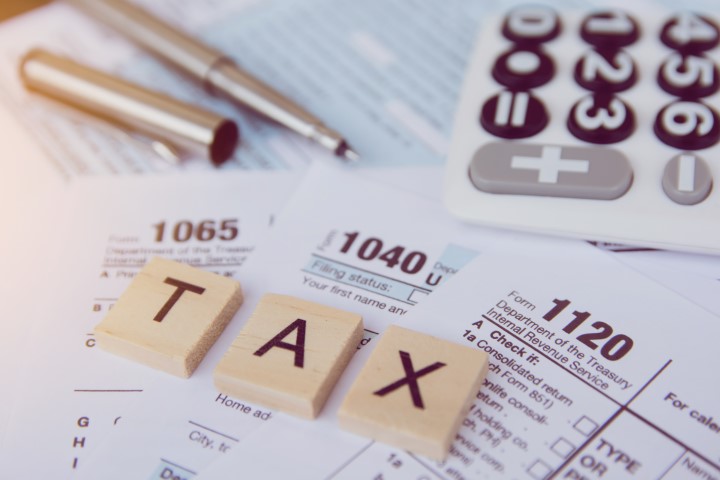Imagine your taxes as a puzzle, each piece crucial to the bigger picture of your financial well-being. Just as every piece matters in completing the puzzle, so do the three best strategies for personal tax optimization.
From maximizing deductions and credits to utilizing tax-advantaged accounts and strategically timing your income and expenses, these strategies can be the key to unlocking substantial savings.
Ready to uncover how these pieces fit together to create a comprehensive tax strategy that works for you?
Key Takeaways
- Maximize deductions and credits for tax savings.
- Utilize tax-advantaged accounts like 401(k) and IRA.
- Strategically time income and expenses for lower tax liability.
- Create a personalized tax strategy for financial well-being.
Maximizing Deductions and Credits
To maximize deductions and credits, assess your financial situation thoroughly and explore all eligible tax-saving opportunities. Deduction strategies play a crucial role in reducing your taxable income. Ensure you take advantage of all the deductions you qualify for, such as charitable contributions, mortgage interest, and education expenses. Keep detailed records and receipts to substantiate your deductions.
Additionally, focus on credit maximization by claiming all the tax credits you're eligible for, like the Earned Income Tax Credit or the Child Tax Credit. Tax credits directly reduce the amount of tax you owe, so it's essential to leverage them fully.
Utilizing Tax-Advantaged Accounts
Consider utilizing tax-advantaged accounts to optimize your tax situation and increase your savings. When planning for retirement savings, contributing to accounts like a 401(k) or an Individual Retirement Account (IRA) can provide immediate tax benefits while helping you build a nest egg for the future.
These accounts allow your investments to grow tax-deferred until withdrawal, potentially reducing your taxable income during your working years. Additionally, health savings accounts (HSAs) offer a triple tax advantage, providing tax deductions on contributions, tax-deferred growth, and tax-free withdrawals for qualified medical expenses.
Strategic Timing of Income and Expenses
Optimize your tax situation by strategically timing your income and expenses. By understanding the timing benefits and expense planning, you can maximize your tax savings effectively. Here's how you can make the most of this strategy:
- Income Timing: Consider delaying bonuses or freelance payments to lower your current year's taxable income.
- Expense Planning: Prepay deductible expenses like mortgage interest or property taxes before year-end to increase deductions.
- Capital Gains: Be mindful of selling investments; holding them for over a year can qualify for lower long-term capital gains tax rates.
Strategic planning of when to receive income and when to incur expenses can significantly impact your overall tax liability, providing you with more financial freedom.
Frequently Asked Questions
What Are the Potential Tax Implications of Investing in Cryptocurrencies?
When investing in cryptocurrencies, be aware of the potential tax implications. Crypto investments can lead to taxable gains that must be reported accurately to ensure compliance with regulations.
Understanding the tax reporting requirements for cryptocurrency gains is crucial to avoid penalties. Stay informed about the latest regulations to navigate the tax implications effectively and maintain financial freedom.
How Can Owning a Rental Property Impact My Personal Tax Situation?
Owning a rental property can significantly impact your tax situation. You can benefit from various deductions related to your property, such as mortgage interest, property taxes, and maintenance costs.
If you host on Airbnb, be aware of the tax implications. Keep detailed records of income and expenses to maximize deductions and stay compliant.
Renting out property can offer financial opportunities but also requires careful tax planning for optimal results.
Are There Tax Benefits to Donating Appreciated Securities to Charity?
Donating appreciated securities to charity can offer tax benefits. By doing this, you can avoid paying capital gains tax on the appreciation while still being able to claim a deduction for the full market value of the securities.
It's a smart move that combines investment strategies with charitable giving, giving you the freedom to optimize your tax situation while supporting causes you care about.
How Does Moving to a Different State or Country Affect My Personal Tax Optimization Strategies?
When you move to a different state or country, your state residency status and international relocation can significantly impact your personal tax optimization strategies. Different locations have varying tax laws and rates, affecting your income, property, and investment taxes.
It's crucial to research the tax implications of your new residency and seek advice from tax professionals to ensure you're maximizing your tax benefits and minimizing liabilities in your new location.
What Are the Tax Implications of Starting a Small Business or Freelancing on the Side of My Regular Job?
When you start a side hustle, remember that side hustle taxes are a real thing. Make sure to keep track of all your freelance deductions to reduce taxable income.
This can include expenses like equipment, supplies, or even a portion of your home office.
Conclusion
In conclusion, by maximizing deductions and credits, utilizing tax-advantaged accounts, and strategically timing income and expenses, you can effectively optimize your personal taxes. These strategies can help you minimize your tax liability and keep more money in your pocket.
Take control of your finances by implementing these tax optimization techniques and make the most of your hard-earned income. Start planning now to secure a brighter financial future.

